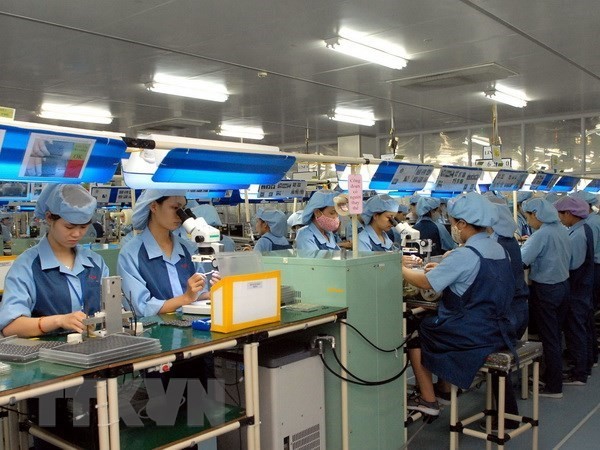(VOVWORLD) - The Institute of Southeast Asian Studies (ISEAS) of Singapore ran an article saying Vietnam’s robust economic performance over the past three decades has been heavily dependent on exports and foreign direct investment (FDI). It underscores that international trade and FDI have turned Vietnam into one of the world’s most open economies.
 (File photo: VNA)) (File photo: VNA)) |
In 2017, Vietnam’s trade-to-GDP ratio was 200%, which was the sixth highest in the world. In Asia, Vietnam was only behind Hong Kong (China) and Singapore. FDI is also playing an important role in Vietnam’s economic development. In 2019, the net annual FDI inflow of Vietnam was equivalent to 6.3% percent of its GDP, which was the fourth highest in Southeast Asia.
The article said Vietnam’s openness to trade and FDI originated from a combination of economic and strategic considerations. Vietnam considers international economic integration a key measure to promote socio-economic development and to achieve its goal of national modernization and industrialization. In other words, Vietnam considers foreign trade and investment as key tools to transform and upgrade its economy.
At the same time, Vietnam also has strategic interests in pursuing open trade regimes, especially FTAs with key economies, and attracting FDI.
The article said Vietnam’s excessive reliance on exports and FDI has been seen as a potential problem for the country. The Vietnamese government also appears to be well aware of the problem and certain remedial measures have been adopted. The key measures are to strengthen production and export capacity of Vietnamese businesses so they can play a bigger role in the economy. Prime Minister Nguyen Xuan Phuc said Vietnam has to build a self-reliant economy in the context of international integration. It must have a strong team of corporations of different types of ownership, including native private enterprises.
Vietnam’s FDI policy has long been favouring foreign investors. But recently, in dealing with domestic investors, especially private enterprises, the government has stressed four key principles of ensuring equality, being protected, being incentivized, and being given opportunities.
Another measure is to encourage private enterprises to expand their businesses, especially into the manufacturing and high-tech sectors, to strengthen Vietnam’s domestic industrial base. Vietnamese businesses are also encouraged and assisted to work with foreign firms to participate in the global value chain. This is an important measure as it enables Vietnamese firms to grow up and play a bigger role in the economy in the long run.
ISEAS says if all the three above measures are implemented successfully, Vietnam’s economy will become more resilient and its export-led, FDI-driven growth model can be claimed a success.